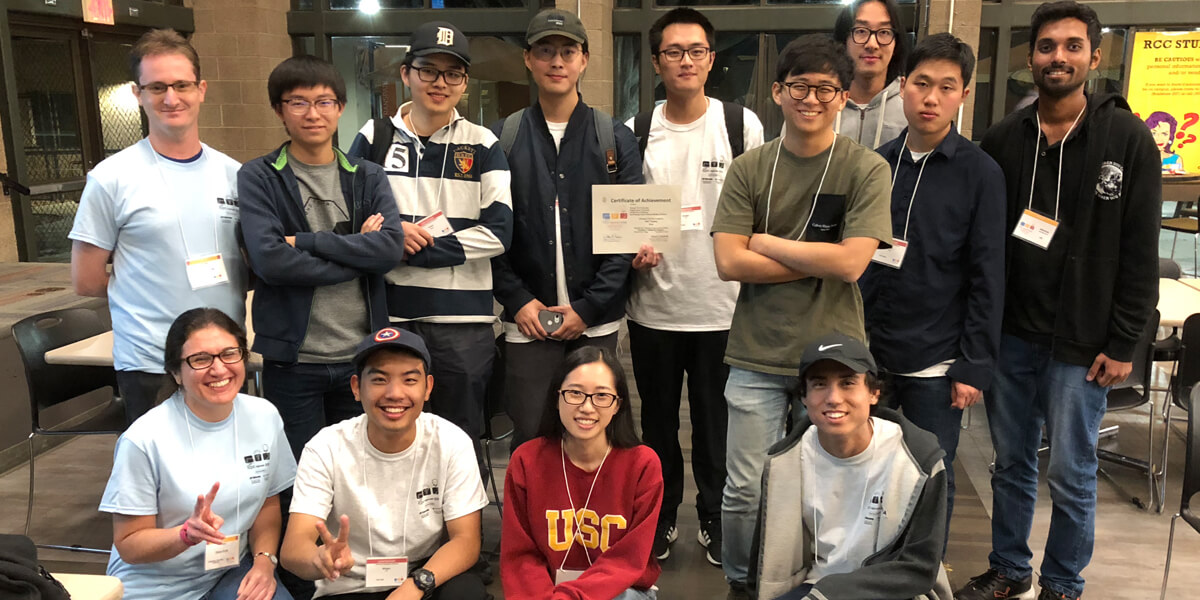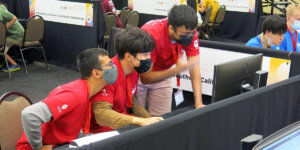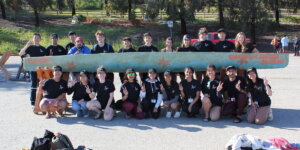
Coaches Michael Shindler and and Olivera Grujic (far left) pictured with the three USC teams that participated in the International Collegiate Programming Contest (ICPC) regional finals this year.
They’ve done it again—for the second year in a row, a team of three USC computer science students is off to the world championship of the “coding Olympics” after placing first in the regional qualifiers in November.
The USC Trojans team will compete in the 2019 world finals of the International Collegiate Programming Contest (ICPC) in Porto, Portugal in April.
Last year, the team made up of Pengda Xiang, Changyu Zhu and Chenhui Zhu, also represented Southern California and Southern Nevada at the ICPC world finals in China, where they placed 77th out of 140 teams.
Founded in 1977, the ICPC is considered the largest and most prestigious programming competition in the world, bringing in 10,000 participants from over 103 countries. Top teams from the regional competitions advance to the final round, where they have the chance to compete against some of the world’s best collegial coders.
This year, three USC teams competed in the regional contest, coached by USC Associate Professor David Kempe, Computer Science Lecturers Olivera Grujic and Michael Schindler and PhD candidates Hrayr Harutyunyan and Yeji Shen.
Out of more than 90 participating teams, the USC Trojans was the only team to solve 10 questions in the given five hours. This year’s win marks the sixth time in eight years that a USC team has advanced to the competition’s world’s final. USC’s other two teams came in sixth and 18th place, with eight and five problems solved respectively.
“Our students at USC are really strong,” Kempe said. “They learn to work on difficult questions under extreme time pressure, and in addition to the programming skills that many already have, they learn how to work as a team.”
In this particular “battle of the brains,” teams are allowed to use only one computer – with no access to the internet – to solve as many computer programming problems as possible within the five-hour limit. Due to the nature of the challenge, speed and accuracy are vital to earn points.
“The most challenging part is the strategy; discussing ideas and making decisions while keeping track of the remaining time,” said senior Chenhui Zhu.
“This time, we had one person do most of the thinking and let the other two implement the solution. It turned out that this strategy worked well. Our plan is to stay focused, keep practicing and do our best at the final in Portugal.”
With the same team members returning to the finals this year, coach Kempe is also feeling positive and said he would not be surprised for a top-20 placement in 2019.
Published on January 11th, 2019
Last updated on January 14th, 2019











